
Speakers
Keynote Speakers
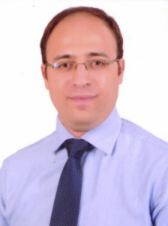
Prof. Aly El Sheikha, University of Ottawa, Canada
Prof. El Sheikha is a specialist in Molecular Biology, Traceability, Food Safety, etc. PhD in "Biotechnology-Microbiology", University Montpellier 2, France, 2010. All academic degrees are equivalent to their counterparts in Canada. Two post-docs [CIRAD, France (2011); Halal Products Research Institute, Malaysia (2012-2013)]. 24 years of experience in the research field as a Principal Investigator, Deputy Leader, Coordinator, and Researcher in several international projects (e.g., Canadian Project “NSERC-CRD-474638-14”; European Projects “EDES”, “FSP 2006-43”, Innovkar “No. INCO-CT-032037”, Trace and HEEPF “Higher Education Enhancement Project Fund” 2004-2006). 18 years of experience in higher education as a Professor, Assistant Professor, Lecturer, Assistant Lecturer, and Assistant in many countries worldwide. Also, supervisor of Academic Programs "BSc, MSc, PhD". Recently, Prof. El Sheikha visited the University of Ottawa (uOttawa) in Canada as a Visiting Professor to establish scientific cooperation between the University of Ottawa (uOttawa) and Jiangxi Agricultural University (JXAU).
Speech title: Molecular techniques reveal more secrets of fermented foods
Abstract: Fermented foods were likely to have been the first among all types of processed foods consumed by human beings. The role that fermented food plays is not only related to the development of civilizations and cultural relationships between countries but also related to the nutritional importance of its population. Of course, the early manufacturers of fermented foods didn’t take into account the advantages of modern sciences, because enzymes and microorganisms were discovered just 150-200 years ago. For that reason, we can conclude why the ancient fermentation techniques were known to philosophers and alchemists, but not to biologists. It demonstrated that the fermentation mechanisms involved many secrets still undiscovered. Recently, applications
of molecular techniques for analyzing and studying fermented foods have been explored. In this review, we provide answers with a critical vision to many questions for understanding the role of molecular techniques to discover the secrets of fermented foods such as how to evaluate traditional fermented foods. Why use molecular techniques to study fermented foods not else? Is the future will carry to us a boom in molecular technologies contributing to the detection of more secrets of fermented food?
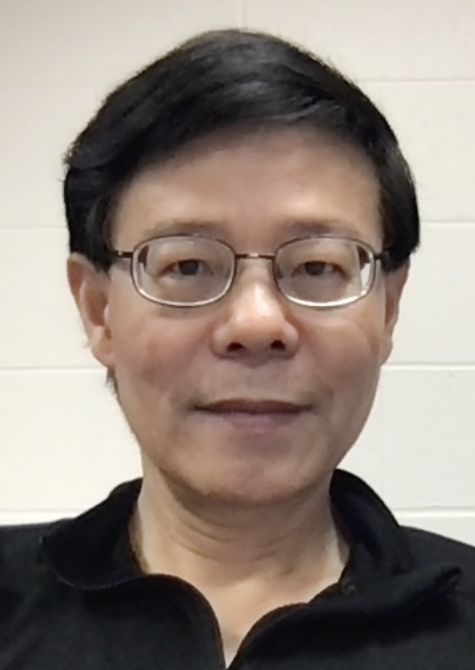
Prof. Yi-Tao Yu, University of Rochester/Medical Center/Department of Biochemistry and Biophysics, USA
Yi-Tao is a Dean’s Professor at the Center for RNA Biology and in the Department of Biochemistry and Biophysics at the University of Rochester Medical Center. He has been working on pre-mRNA splicing and RNA modification for about 30 years. One of the projects currently being carried out in his lab focuses on nonsense suppression. Specifically, his lab is developing a novel approach, namely targeted RNA pseudouridylation, to precisely modify the pre-mature translation termination codons (PTCs, resulting from nonsense mutations) present in mRNAs, thus suppressing nonsense-mediated mRNA decay (NMD) and promoting PTC read-through to restore full-length proteins. His work has made significant contributions to this field of research.
Speech title: Targeted pseudouridylation: A novel approach for suppressing nonsense mutations in disease genes
Abstract: A large number of genetic diseases are caused by various mutations in specific disease genes. A significant proportion (~15%) of these mutations are nonsense mutations that create a premature termination codon (PTC). Consequently, the Nonsense-mediated mRNA Decay (NMD) surveillance pathway degrades a large fraction of PTC-containing mRNA. Translation of the remaining un-degraded PTC-containing mRNA terminates at the PTC, leading to no full-length protein production and hence disease. Therefore, suppressing NMD and translation termination at PTCs becomes an attractive strategy for combating these diseases. Over the past several years, we have been developing a novel approach, namely targeted PTC pseudouridylation, to suppress nonsense mutations in human cells. By co-transfecting human cells with a PTC-reporter gene and a designer box H/ACA guide RNA gene targeting the PTC, we show that targeted pseudouridylation suppresses both NMD and translation termination at PTCs in the contexts of various disease gene sequences. Furthermore, targeted pseudouridylation exhibits a level of suppression comparable to that of antibiotic treatments, and the suppressive effect is long-lasting in the cell. When targeted pseudouridylation is combined with the antibiotic treatment, a much higher level of suppression is observed. Remarkably, by transfecting a disease model cell line (carrying a chromosomal PTC) with a designer guide RNA gene alone targeting the PTC, we also observe nonsense suppression, suggesting the high potential of this novel approach in treating PTC-associated diseases. Finally, one of the restored full-length proteins is further tested to be functional. Targeted pseudouridylation appears to be the first RNA-directed gene-specific therapeutic approach that suppresses NMD and concurrently promotes PTC read-through.
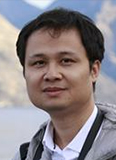
A/Prof. Binh P. Nguyen, Victoria University of Wellington, New Zealand
Dr Binh Nguyen has strong experience in data science and predictive modelling using deep learning, especially in the highly complex interdisciplinary research developed working on both academic and industry focused projects. In the past, he has won several awards for his work on the development of innovative medical devices and the application of data science to improve healthcare. Since joining Victoria University of Wellington (New Zealand - NZ) as a Senior Lecturer in Data Science in 2018, he has been focusing on developing novel methods based on deep learning and graph machine learning to solve emerging problems in health informatics, bioinformatics, and drug discovery. He is currently the principal investigator of a prestigious project funded by Callaghan Innovation (NZ), aimed at using deep learning approaches to develop new natural products for treatment of type II diabetes. He is also the sole principal investigator of a research project in collaboration with the Singapore Immunology Network to develop a novel deep learning framework to identify FDA-approved drugs that can be repurposed for treatment of tuberculosis. In addition, he is a key researcher on other four projects funded by the Ministry of Business, Innovation and Employment (NZ) and the NZ Health Research Council with a total amount of more than NZ$18 million.
Speech title: Graph Convolutional Residual Neural Networks for Screening of Multi-target Anticancer Compounds
Abstract: The development of effective anticancer drugs requires the screening of a large number of compounds, which is a time-consuming and challenging process. To address this issue, several computational approaches have been proposed; however, they are now either outdated or inaccessible. We introduce a model based on multitask learning using graph convolutional residual neural networks with two types of shortcut connections. Our model aims to identify multi-target anticancer compounds. We also refined the NCI-60 dataset, a reliable source of experimentally verified compounds that includes data screened across nine cancer types, for model training and evaluation. Experimental results show that our proposed method outperforms two other advanced multitask learning methods. Furthermore, the integration of two shortcut connection types in the shared networks enhances the prediction efficiency. Our study demonstrates the potential of computational approaches to accelerate the identification of promising anticancer drug candidates.
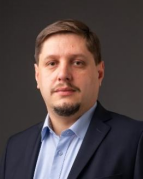
A. Prof. Oleksiy V. Penkov
ZJU-UIUC Institute, Zhejiang University, China
Dr. Oleksiy Penkov is currently an associate professor at the Zhejiang University - University of Illinois at Urbana-Champaign Institute (ZJU-UIUC Institute), an adjunct associate professor at the University of Illinois at Urbana-Champaign, and the head of Cross-Scale Materials Innovation Center. In 2007, he received his doctorate in physics and mathematics, specializing in solid-state physics, from the National Technical University “KhPI” (Ukraine). During 2011–2019, he was a research professor at the Center for Nano-Wear at Yonsei University (Korea). He has been working in nanomaterials and coatings since 2000 and has more than 20 years of experience developing periodic nanolayer structures for various applications, including durable biomaterials. In the past ten years, he has published over 50 papers in high-impact journals such as Science Advances, Nano Letters, Biomaterials, etc., and registered six international patents.
Speech title: Development of a Novel Carbon-Based Coating for Biomedical Implants
Abstract: The effectiveness of biomaterials implanted into the human body is determined by their functional properties (e.g., mechanical durability) and the interactions between the materials and surrounding tissues. It depends on the chemical processes in the surface layers. Various protective coatings were recently proposed to increase alloys' chemical stability, biocompatibility, and mechanical durability in corrosive environments like the human body. One such coating material is Diamond-like carbon (DLC) which has gained attention because of its unique chemical and mechanical properties. The mechanical performance of DLC-based coatings was further improved by incorporating other materials in the form of nanoparticles or nanolayers. But, in many cases, improving mechanical durability altered the biocompatibility of coatings. This problem was overcome by a surface treatment that changed the surface chemistry without degradation of the mechanical properties of the bulk coating. In conclusion, developing new materials and coatings is crucial for improving the performance and biocompatibility of biomedical implants. The carbon-based coating offers a promising solution to the challenges faced by current implant materials, and further research and development are needed to optimize its performance for clinical use.
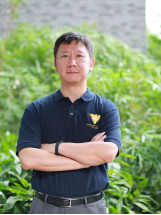
Prof. Minxue Zheng
Suzhou Institute of Biomedical Engineering and Technology (SIBET)/Center for Nucleic Acid Diagnostic Technology
Dr. Minxue Zheng is a “Hundred Talent” professor of the Chinese Academy of Sciences (CAS), PhD. Advisor of University of Science and Technology of China; Suzhou Institute of Biomedical Engineering Technology (SIBET), and director of Nucleic Acid Test Research Center at SIBET, CAS; and director of Biotechnology Research Laboratory at Zhejiang University Kunshan Innovation Center. Dr. Zheng was as Chief Technology Officer (CTO) at BioChain, Siemens Healthcare and Bayer Diagnostics in Silicon Valley, US for over 14 years.
Speech title: Nucleic acid thermodynamics and its applications in tumor screening
Abstract: We study the secondary structure of nucleic acids in single stranded state, particularly of interests to the applications in molecular diagnostics technics (probes technologies, PCR, and sequencing). Some applications in the area of tumor screening will be demonstrated.